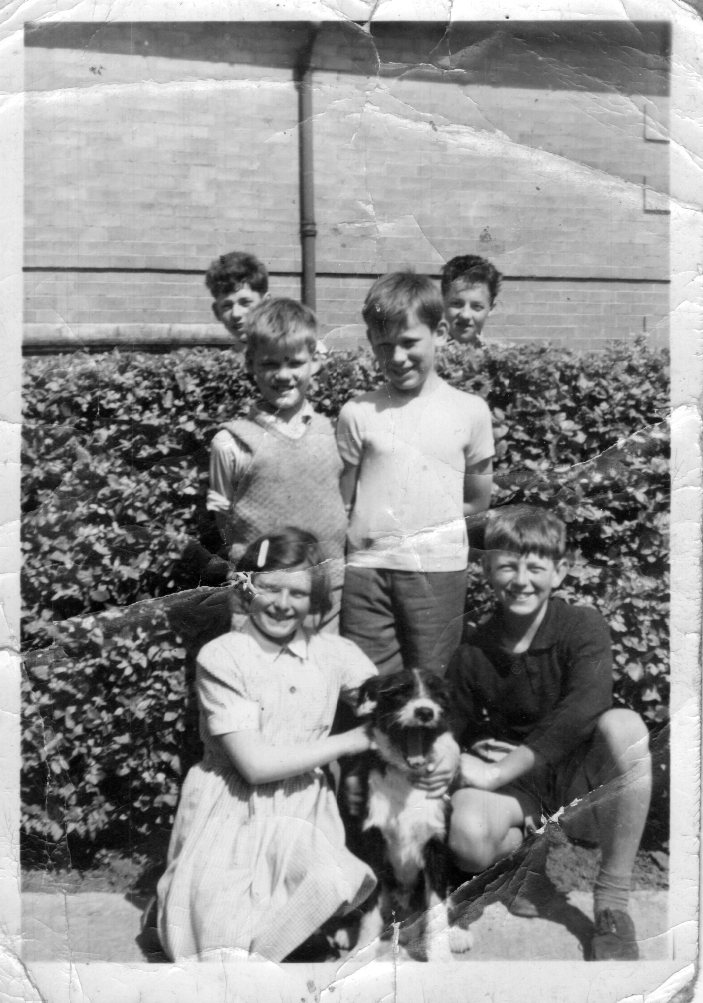My early experiences of Freemasonry.
When I was a young man aged about fifteen, fresh out of school and just beginning to serve my apprenticeship as a shipwright in Rosyth Naval Dockyard I met a man I knew, a painter by trade. He was busy painting the front of a building, which stood directly opposite the berth of a ship that the Duke of Edinburgh was due to inspect.
The painter explained a theory -often heard since- that the Queen and Duke believed the smell of paint, polish and disinfectant are nature’s odours, because they had never known anything else in the environments that are spruced-up and sanitised for their visits. We laughed at this naval bull, because the back and sides of the same building were in a terrible state.
On the basis of this theory Freemasons must believe that the sound of clanking chains and padlocks being snapped onto factory gates are the norm, because in my experience every business or industry that is dominated by freemasons will fail, sooner or later, due to the inefficiency and corruption the Craft fosters.
My negative view of freemasonry is born out of experience, but it is not something I have always had. In fact the opposite is the case. My first experience of freemasonry was as a boy when my next-door-neighbour and best friend Ian Ellis showed me the strange leather apron and cuffs his father, Andy wore. We dressed in these and paraded in front of his parent’s bedroom mirror.
Our Masonic fashion parade went undiscovered, but it wouldn’t have mattered too much if we were found out as Mr and Mrs Ellis were warm and kind people and the best of neighbours to me and my devoutly RC, English, foster-parents, Jack and Margaret Young.
 Pic taken in Ian’s garden, my house in background. Mid Row L to R, Ian Ellis and Tom Minogue.
Pic taken in Ian’s garden, my house in background. Mid Row L to R, Ian Ellis and Tom Minogue.
Ian’s mum, Mrs Ellis was a member of the Eastern Star would constantly urge Mrs Young to join the Star and get Jack to join the lodge, which she said made no difference between Catholic and Protestant. On reflection this lovely lady spoke with sincerity, expressing a view that I am sure was not shared by many of her less-principled brethren.
Not only did the Ellis family give me my first taste of freemasonry, they gave me my first taste of jazz. The family head, Andy Ellis, taught trumpet and played in local brass and dance bands as did three of his sons while his daughter taught piano.
When I told Mr Ellis I had acquired an unsold wind-up gramaphone player at a local jumble sale he laughed and kindly gave me some 12 inch 78 rpm records that were doubles in his collection. I still love those tunes and when feeling down I play Jelly Roll Morton’s Doctor Jazz and think back to the man who introduced me to music.
So my boyhood experiences of freemasonry were positive and came from living next door to good people who only differed from my family in minor ways. Both families head’s relied for work on the local dockyard.
After work Andy Ellis trotted off to the lodge with his attaché case on midweek evenings, while Jack Young went to mass on a Sunday where for a short while he wore the lapel badge of the Knights of St. Columba. Their wives paths were common in their membership of the Cooperative Woman’s Guild, but differed in that Mrs Ellis attended the Eastern Star, while Mrs Young went to the Children of Mary.
My own views on fraternal societies were perhaps shaped in some small part by an incident related to me by Jack Young. Jack was a quiet man who would become expansive after he had a few pints, which was on most weekend nights. Jack had joined the KSC after some urging from his ambitious wife Margaret who thought it might help Jack get on in the Royal Dockyard where he worked.
After a few drinks, my hero – the rather reluctant Knight – told me he had quit the order after he had noticed that the handful of other fraters crowded round a new parishioner – who as well as being a Knight was a senior manager in the dockyard – following Sunday mass.
Jack said he was appalled by this “snivelling”, declaring that if he couldn’t get on by his own ability without courting favours in this manner he would pack it in. And pack it in he did.
I never knew my father who died and left Jack’s sister, my mother, a widow when I was only a baby and I always considered Jack as my father and loved and respected him like the father I never knew. So I suppose when this man told me that I should always stand on my own two feet, this advice, and his example, would have an impact on my thinking.
I would stress though that I never heard anything negative about freemasons being said in my home, because other than the membership campaigning of Mrs Ellis, which was spoken of in a humorous vein, the subject was not discussed, no doubt in some part out of respect for our good Masonic neighbours.
So I started out with an open mind on membership of fraternities other than the Knights of St. Columba, and formed my own views based on my experiences, without any predetermined agenda.